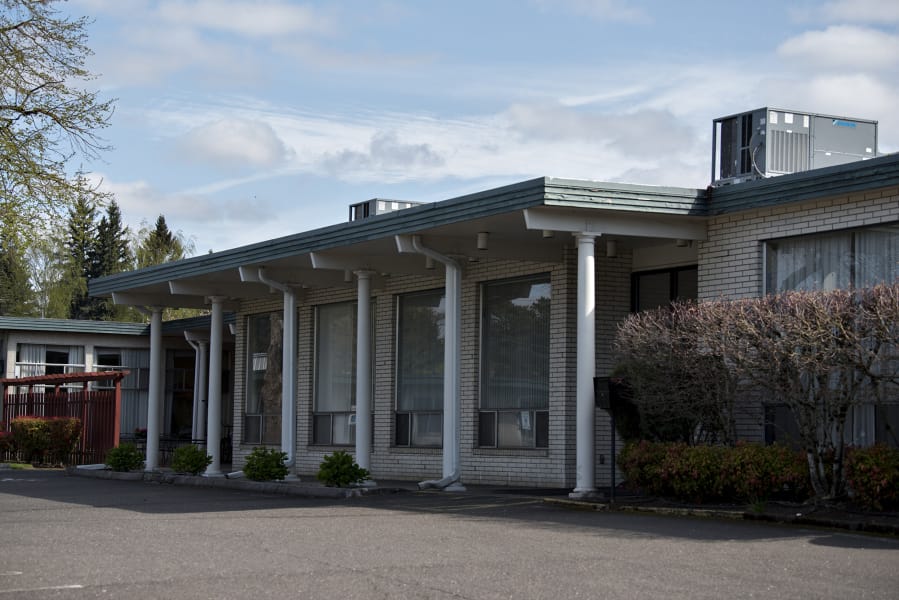For three straight years, state-run health inspection teams showed up at a long-term care facility in east Vancouver and left with similar findings each time.
In 2017, inspectors discovered Pacific Specialty and Rehabilitative Care did not have an adequate program to investigate, control and keep infection from spreading. In July 2018, months after Pacific Specialty and Rehabilitative Care changed ownership and its name to Vancouver Specialty and Rehabilitative Care, inspectors found that the skilled nursing facility did not provide and implement a complete infection prevention and control program.
And most recently, in May 2019, inspectors again found that Vancouver Specialty and Rehabilitative Care did not provide and implement a complete infection prevention and control program. The failures led to minimal harm or potential for harm, but were widespread, affecting “many” residents.
“These failures placed residents at risk of potential exposure to contaminants, micro-organisms and illnesses,” reads a statement of deficiencies from 2019.
Each finding, documented by the U.S. Centers for Medicare & Medicaid Services, or CMS, showed that Pacific Specialty, and then Vancouver Specialty after it, failed to fully follow federal regulations to stop infections from occurring and spreading.
Now that a pandemic has manifested locally, Clark County has had nine long-term care facilities infected with the virus. Seventeen of the county’s cases are either staff or residents at long-term care facilities, and at least five of the county’s 13 deaths have been associated with long-term care facilities.
According to Clark County Public Health, four of those cases, the most for any long-term care facility in Clark County, are connected to Vancouver Specialty and Rehabilitative Care, which generally has around 80 residents.
Since 2016, Pacific Specialty, and then Vancouver Specialty, have combined for around 60 deficiencies, and more than $397,000 in CMS fines, the highest amount in Washington over that time period, according to a ProPublica database.
Pacific Specialty made up a majority of deficiencies and fines, but Vancouver Specialty has had close to 20 deficiencies and was fined nearly $45,000 after it took over ownership of the long-term care facility in April 2018. The facility has a two out of five-star rating from CMS.
A national problem
Data shows that long-term care facilities in Washington and across the nation struggle to adhere to regulatory standards, particularly when it comes to infection control.
An analysis by Kaiser Health News reported that of the nation’s nearly 9,700 nursing homes, 63 percent were cited for at least one infection-control deficiency in the last four years. In the last three years, there have been more than 150 infection citations in Washington, according to Kaiser data.
Washington ranks in the top 10 in the U.S. for serious deficiencies per home, according to ProPublica.
Long-term care facilities often house older populations, and many times residents have other health complications, or are rehabbing from a previous illness or injury. That makes the facilities one of the most fragile settings for an outbreak.
Southwest Washington Regional Long Term Care Ombudsman Neil Degerstedt said there are hundreds of pages of regulations facilities have to follow, and limited staffing or frequent turnover are often the root cause of infection-control deficiencies.
“It’s very difficult,” Degerstedt said.
The Seattle Times reported Thursday that at least 137 long-term care facilities have been infected, and that at least 52 of those facilities are connected to 221 COVID-19 deaths, almost half the number of confirmed deaths in Washington. The Centers for Disease Control and Prevention estimates at least 400 long-term care facilities in the U.S. have seen infections, but both state and national figures are considered undercounts.
Last month, all eight Clark County mayors and the Clark County Council sent letters to Gov. Jay Inslee, explaining that a shortage of testing supplies was hampering the county’s ability to test its most vulnerable populations.
“Our providers have restricted testing mostly to hospitalized patients, and it has been difficult, if not impossible, to test long-term care facility residents and other high-risk populations with COVID-19-like illness,” the mayors’ letter reads.
Vancouver Specialty and Rehabilitative Care Executive Director Bernard Bufford said his facility does not have any residents who are positive cases at the moment. He would not say whether that means all four cases are staff, or if there have been infected residents who are now hospitalized, or have died.
Bufford said Vancouver Specialty completely overhauled leadership and staff, since new ownership took over in April 2018, and has worked to improve the facility, which has resulted in fewer deficiencies and fines.
“Things have gone very well,” he said.
A history of issues
In December 2016, before Vancouver Specialty took over, Pacific Specialty was hit with findings of immediate jeopardy to resident health or safety, the most serious violation a long-term care facility can register.
At that time, inspectors found that Pacific Specialty didn’t fix a leaking roof, and that water had collected into an emergency power transfer switch box, which jeopardized the building’s power supply, essential for 19 residents living on ventilator and tracheostomy machines.
“Emergency power is critical to their well-being,” the statement of deficiencies read.
In 2017, a licensed nurse at Pacific Specialty failed to properly follow hand hygiene protocol during wound care. While dressing a wound, the nurse changed gloves multiple times but didn’t wash her hands in between changing gloves. When asked if hand hygiene should occur during wound care, the nurse responded, “I guess I could use sanitizer, but there isn’t any in here, and I’d spend my whole time doing that.”
Two inspections found a number of deficiencies in 2018 and 2019 after Vancouver Specialty took over care of the facility. In both years, Vancouver Specialty was cited for infection-control problems.
Vancouver Specialty failed to create an adequate water management program to reduce growth and spread of Legionella (a bacteria found in water that can cause a serious pneumonia), according to CMS’ documents. In 2019, Vancouver Specialty was once again cited for deficiencies involving its water management program, and also failed to ensure laundry equipment was disinfected and stored in a sanitary way.
Breakdowns in care
Prestige Care & Rehabilitation in Camas and ManorCare Health Services in Salmon Creek, which have also been associated with COVID-19 cases, have been cited for deficiencies in infection control, and other areas.
Prestige Care, which had one staff member test positive in late March, was fined more than $8,100 for deficiencies in 2018. Prestige Care, like Vancouver Specialty, has been cited for not having an adequate water management program, and also had a caregiver use improper hand hygiene while dressing a wound.
Neither Prestige Care nor ManorCare have been cited for any serious deficiencies in the last three years, according to CMS. Three close contact patients of the Prestige Care case have tested negative for the virus, according to a Prestige Care statement, and the facility says it is working with the county and state to take proper measures. The infected staff member was quarantined at home.
“We are consistently following environmental cleaning and disinfection procedures set by the CDC throughout our organization,” Prestige Care said in a statement.
A statement from ManorCare said the facility is screening and monitoring all employees and patients for COVID-19 symptoms. They are also quarantining anyone who is at a higher risk for the virus, or might have been exposed to it.
“The health and well-being of our patients is the primary focus of our employees,” the statement reads.
According to CMS documents from 2018, ManorCare failed to follow protocol while caring for a resident with a respiratory virus. A nurse entered the resident’s room without gloves, a mask or a gown, even though personal protective equipment was stationed outside the room. The nurse did not wash her hands before entering or leaving the room, and picked up a can and two Styrofoam cups while in the room.
The nurse explained that she didn’t care for that resident regularly, and didn’t know the resident was sick, but according to documents the PPE stationed outside the room was supposed to be a sign that the resident was in isolation for a virus.
A challenging situation
Degerstedt said Vancouver Specialty has a particularly challenging set of circumstances because many of its residents require high levels of care.
Degerstedt said it’s the only large-scale nursing facility in Clark County to have many residents on ventilators and tracheostomy machines, and he said the facility is needed in Clark County. He thinks the new staff have been trying their best to improve care and adhere to regulations.
Degerstedt also said this pandemic has emphasized the importance of infection control.
“It’s offensive for a resident to have to live in an environment that is overpowering to the senses,” Degerstedt said. “But currently, it can be life-threatening. We’re not just talking about quality of life, we’re are talking about the possibility that a resident can have their life ended because of poor sanitary conditions.”




